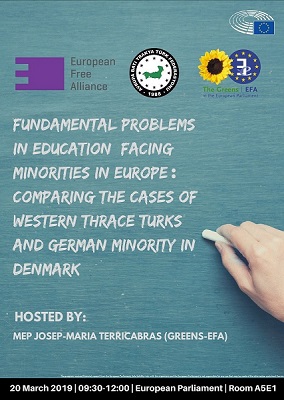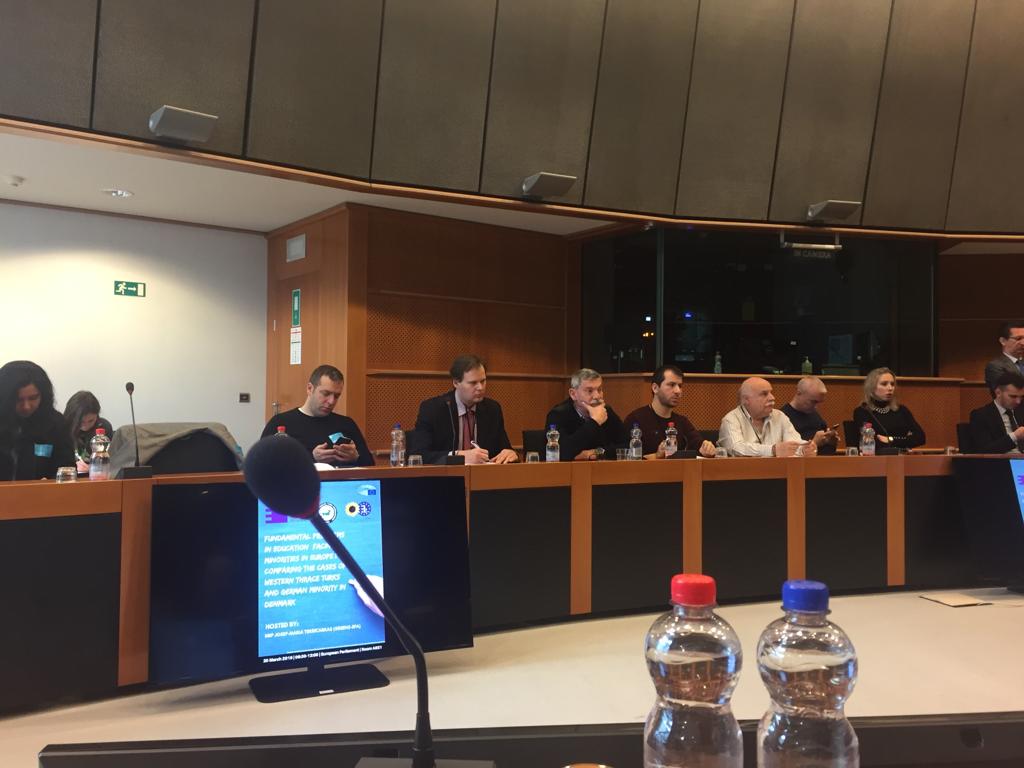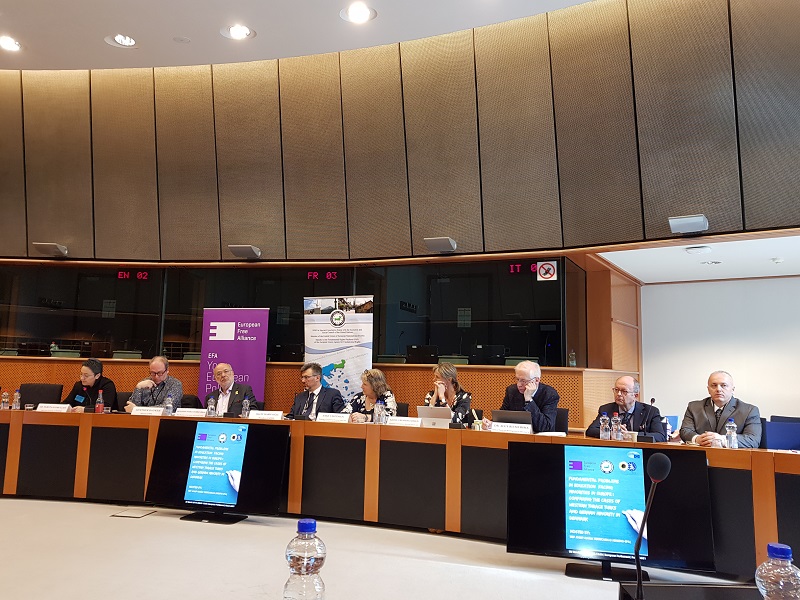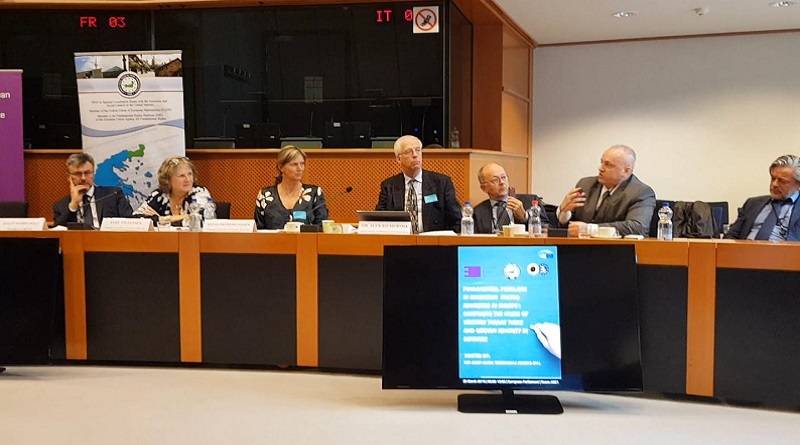On 20 March 2019, the European Free Alliance (EFA) political group organised a conference in the European Parliament, which discussed the minority situation in Greece. The conference with the title ‘Fundamental problems in education facing minorities in Europe: comparing the cases of Western Thrace Turks and the German minority in Denmark’ brought together minority rights experts, politicians and activists in the halls of the European parliament. Chamerian President Festim Lato attended the conference where he explained the situation of the Cham to the audience. He was accompanied by Chamerian Ambassador for Belgium Guido Bout, Consul Rudi Wijnen and diplomat Jeroen Zandberg.

MEP Josep Maria Terricabras opened the conference and explained the commitment by the EFA-Greens for minority rights. The program featured several presentations by academics and minority rights activists.
Firstly, Ms Anke Tastensen and Ms. Kathe Freieberg-Nissen explained the situation of the German minority in Denmark and the objectives of their association, which are the preservation of German culture and language in the region of North Schleswig.

Their presentation was followed by a contribution from several representatives of the Turkish minority in Greece, among which Mr. Halit Habib Oglu, the president of ABTTF, who explained the minority rights provided to them by the 1923 Treaty of Lausanne. The Greek government however does not refer to any specific ethnic background for minorities and only recognises religious minorities. It therefore refers to them as the ‘Muslim Minority of Western Thrace’. Mr. Jeroen Zandberg engaged in a discussion with several of the representatives to what degree it would be possible for other minorities in different regions of Greece, like the Cham in Chameria, to benefit from the rights granted to the community in Western Thrace and cooperate with them in existing structures. From the following discussion it became clear that these rights granted though the Lausanne Treaty are specific to the region of Western Thrace and the resident religious minority. This situation does not provide an opportunity for the Cham to claim minority and language rights in Greece and therefore other avenues need to be pursued to gain justice.

Following these presentations and discussions, another participant of the conference, Professor Alex Riemersma, made a presentation about the situation of the Frisian minority in the Dutch province of Fryslan. He continued with an explanation of the Minority Safe Pack Initiative (MSPI), which is a collection of legal proposals to the EU in order to promote minority and language rights and the protection of minority cultures. The professor also explained the basis and implementation of the European Charter for Regional or Minority Languages. This charter was adopted as a convention in 1992 by the Committee of Ministers of the Council of Europe and entered into force on 1 March 1998. It sets the minimum standards to protect and promote regional and minority languages in Europe. However, although most countries have ratified this convention and have implemented its recommendations, Greece is not a signatory to this convention and the Cham can therefore not claim language rights based on this convention.
Chamerian president Festim Lato also took the opportunity to explain the history and current situation of the Cham: “Since the Second World War we live as refugees in Albania and in Greece. There is discrimination in Albania from the government of Albania because I’m Cham. And there is also discrimination by Greece. The Greek government does nothing about the situation of the Chams. What I want to tell the European Union and the MEP’s from Greece, thank you that you are here, maybe you can bring it to your parliament. My message is that from 1991 the communist regime in Albania does not exist anymore. Till now, the Greek government doesn’t accept anyone from Chameria to visit the place he was born. And what is very important is that the Greek government pays money to Albania to close the Cham situation and to bring that the old people are dead, and after that to say we did not make the genocide. Because in World War Two there was a big genocide, which left many women and children dead in our country. General Zervas from Greece killed so many people in northern Greece. These were mainly Muslims and Jews, because in Janina lived only Jews and in the place from Igoumenitsa and Preveza lived all Muslims. There also lived Orthodox, but we don’t have problems with religion because Albanian is a model for the world and we have never had problems with religion. I want to ask the Greek government why since from 1991 till today it doesn’t accept the Cham people back in the country and to get a Greek passport?”



